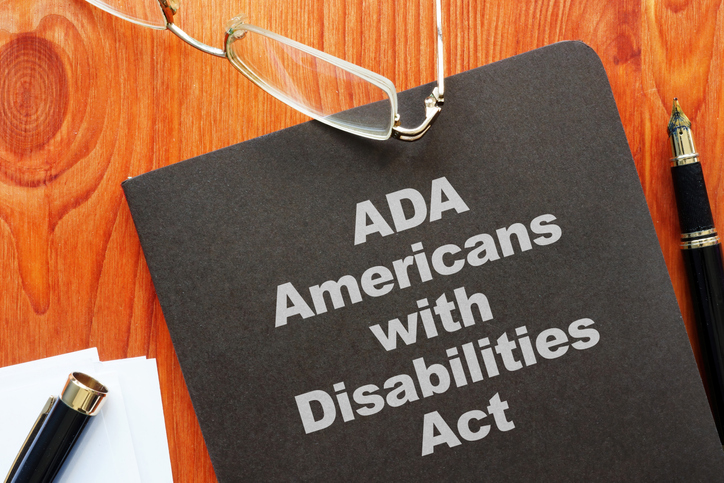Living with Chronic Pain
Americans With Disabilities Act

What is the Americans with Disabilities Act?
Passed into law in 1990, the Americans with Disabilities Act (ADA) protects the civil rights of individuals with disabilities. The ADA ensures that individuals with disabilities have equal opportunities in employment, state and local government services, public accommodations, transportation and telecommunications. Places of public accommodations include, but are not limited to, restaurants, retail stores, libraries, private schools, day care centers, doctor offices, hotels and theaters. Private clubs and religious organizations are exempt from the law.
Who does the ADA cover?
Individuals with physical or mental issues that significantly limit one or more major life activities may be considered disabled under the ADA. Major life activities covered by the ADA include, but are not limited to, seeing, hearing, eating, walking, standing, lifting, breathing, learning, reading, caring for oneself, thinking, communicating or working. Public buildings, such as retail stores, libraries and offices, are obligated to provide reasonable entrance and exit access for individuals with disabilities. The ADA also stipulates that accommodations be provided for individuals with hearing or speech issues; this is enforced by the Federal Communications Commission (FCC). More information is provided on the FCC website at https://www.fcc.gov/general/title-iv-ada.
How does the ADA protect potential and current employees?
The ADA protects individuals with disabilities who are qualified and able to perform necessary job duties; therefore, employers cannot refuse to hire a person if their disability prevents them from performing non-essential tasks. The ADA does not determine a disability based on general health conditions but investigates each case on its own merit. U.S. federal government employees are not covered under the ADA; instead, they are protected equally under a different law enforced by the Office of Federal Operations of the Equal Employment Opportunities Commission (EEOC).
What are the responsibilities of employers under the ADA?
The Americans with Disabilities Act applies to any employer with 15 or more employees. The ADA does not require employers to hire an individual with a disability rather than another applicant; however, it does prohibit discrimination due to a disability. Reasonable accommodations are required under the ADA to allow an individual with a disability to perform the essential functions of a job. Reasonable accommodations may include the following:
- Work schedule changes
- Electronic readers
- Interpreters
- Adaptive equipment
- Modifying tests
- Handicap accessible parking spaces
- Handicap accessible entrance and exit
- Job restructuring
An employee with a disability is responsible for requesting needed accommodations; however, disclosure of a disability is not required. Should an individual choose not to request accommodations, an employer is not required to provide them. Because every individual is different, accommodations are typically determined on a case-by-case basis. An employer may not be able to accommodate an employee if it causes an undue hardship on the employer (extremely difficult to execute or financially impossible). Employers cannot decrease the salary of an individual with a disability in order to recoup the cost of an accommodation. Employers are not required to provide personal use items, such as hearing aids or glasses, nor are they required to change position requirements, such as education, experience, skills or licensing.
Individuals who have experienced discrimination due to a disability can file a complaint with the Equal Employment Opportunity Commission (EEOC) at 1-800-669-4000. For more information about the Americans with Disabilities Act, visit the U.S. Department of Labor’s website at https://www.dol.gov/general/topic/disability/ada.


















